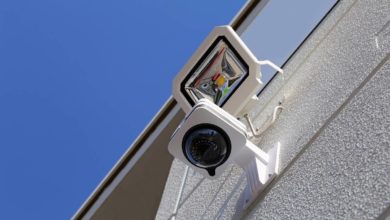3 Dangers of Spyware on Employees’ Phones and 3 Simple Checks to Get Employees to Perform
Modern employees are spending a lot of time on their mobile devices even during working hours. Others are even using these devices for their work. They (mobile phones) play an essential role both in employees’ work and personal lives.
However, did you know that these phones could pose a threat to the security of your business systems and data? Well, the truth is that smartphones are part and parcel of every employee’s day at work.
Most employees use their phones to access files remotely, check their emails, and download attachments, among many other tasks. However, do you know what could happen if the phones contained spyware?
3 Dangers of Spyware on Employees’ Phones
Communication Interception
There are different types of cyber attacks but the existence of spyware on your employees’ phones could lead to communication interception. How does this happen? Just like other WiFi-enabled devices, smartphones can also be attacked through wireless networks.
This introduces spyware that comes with a man-in-the-middle attack. This spyware intercepts and decrypts data transmission between the affected mobile phone and everyone else that communicated with the phone’s owner.
Hackers will then be able to hear and see everything that the employee is sharing with people on their contact list, including your clients. They can even hijack online sessions and gain access to your systems, gaining access to your business data.
Malicious Code
Some spyware threats are engineered to trick the mobile phone user into doing what a hacker wants them to do. While some ask the user to install malicious applications without knowing, others trick them into clicking links that grant the hacker access to the phone.
When this happens, the hackers might end up stealing crucial data from the employees’ mobile phone devices. Others might gain complete control over the phone, albeit remotely, and make malicious authorizations that might harm your business.
The existence of spyware on a single phone can also provide a loophole for all other employees’ phones. Since these phones are all connected to the same network in the office, a hacker can easily hack more phones and this could harm your business severely.
Identity Theft
You are the CEO of a very reputable company. Everyone knows you and understands how important you are to your organization. You are the one who authorizes all transactions in your company.
Hackers have gained access to this information and want to use it. Unfortunately, they do not have your personal information. Did you know that they could use spyware on your employees’ phones to gain access to your personal information?
When that happens, they can steal your identity and authorize fraudulent transactions. Most of the time, these transactions are made to benefit the hackers and steal from your business.
3 Simple Checks to Get Employees to Perform and Protect their Phones
Educate and Provide Anti-Spyware Software for Employees
Your employees need to understand how to detect iPhone spyware. Certo explains it quite well. You also need to understand that your employees are the first line of defense when it comes to your business’s cyber security.
If you do not implement measures to train your employees on the things they can do to identify and handle the potential existence of spyware on their mobile phones, then you will be putting your business at risk.
For instance, if hackers manage to steal your identity as discussed above, they might authorize your accountant to transfer some money to a certain account. This would be a loss for your business.
Implement Phone Management Policies
One of the most important things you need to do is to implement phone management and security policies to protect your employees’ mobile phones. This allows you to enforce certain protocols that every employee must follow.
For instance, you can introduce multiple layers of security for all employees who would like to access the company servers from their mobile phones. If an employee is accessing their emails, they need to log in using multiple passwords.
If an employee’s phone gets lost, then you need to ensure that that employee knows what they need to do to protect themselves and the business. It might involve reporting to the IT team or other cleanup measures to protect the business.
Facial, Fingerprint, and Passcode Authentication
As discussed above, mobile phones pose the biggest loophole when cybercriminals want access to your business data. If an employee has not added authentication on their devices, they might expose your business to unauthorized access.
The first rule is to ensure that all employees have set up facial, fingerprint, and passcode authentication on their mobile phones. No one should be unlocking their phones by simply pressing a button or swiping on the screen. This should be the first line of defense concerning employees’ mobile devices.
Mobile phones play a crucial role in our day-to-day lives. We use them for work and personal communication and access to information. If they are not properly protected, businesses might be exposed to cyber criminals, something that could hurt their operations and reputation.




